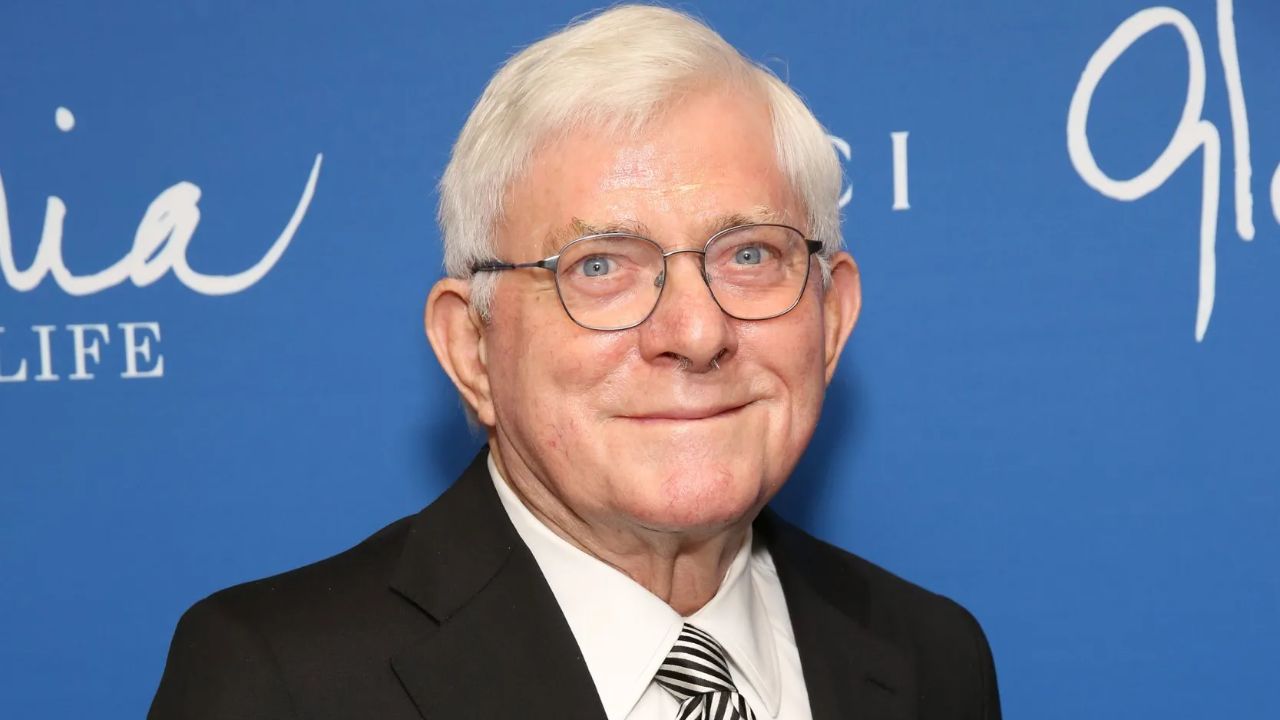When we talk about iconic talk show hosts, Phil Donahue’s name always pops up in the conversation. But today, we’re diving deep into a more personal side of his life—his battle with Alzheimer's disease. This isn’t just about a celebrity diagnosis; it’s about the human story behind the headlines, the challenges faced by millions worldwide, and how one man’s journey can inspire us all.
Phil Donahue, or Donahue as many fondly call him, isn’t just a name from the past. He’s a legend who revolutionized the talk show genre. But life has its twists, and for Phil, Alzheimer’s disease became an unexpected chapter. It’s not just about the disease itself but how he and his family have handled it with grace and openness.
In this article, we’ll explore Phil Donahue’s life, his diagnosis, the impact of Alzheimer’s, and what we can learn from his journey. This isn’t just an article; it’s a conversation starter about a disease that affects so many yet is still shrouded in mystery and stigma.
Read also:Unveiling The Truth About Mckinley Richardson A Comprehensive Dive
Here’s what we’ll cover:
- Phil Donahue: A Brief Biography
- Understanding Phil Donahue's Alzheimer's Diagnosis
- Early Signs and Symptoms
- Life After Diagnosis
- The Critical Role of Family
- Building a Support System
- Advancements in Alzheimer's Research
- Raising Awareness
- The Emotional Impact on Loved Ones
- Conclusion: Lessons Learned
Phil Donahue: A Brief Biography
Before we delve into his battle with Alzheimer’s, let’s take a moment to appreciate Phil Donahue’s incredible career. Born on December 21, 1935, in Cleveland, Ohio, Donahue started his career in broadcasting with a passion that was unmatched. Below is a quick rundown of his life:
| Full Name | Philip Franklin Donahue |
|---|---|
| Birthdate | December 21, 1935 |
| Birthplace | Cleveland, Ohio |
| Profession | Talk Show Host, Journalist |
| Notable Work | "The Phil Donahue Show," Pioneer in Talk Show Genre |
Donahue was the first to tackle controversial topics on national television, paving the way for modern talk shows. He wasn’t just a host; he was a trailblazer. But life has its ups and downs, and Alzheimer’s became a significant challenge in his later years.
Understanding Phil Donahue's Alzheimer's Diagnosis
What is Alzheimer's Disease?
Alzheimer's is a progressive neurological disorder that affects memory, thinking, and behavior. It’s the most common form of dementia, and unfortunately, it has no cure yet. Phil Donahue’s diagnosis came as a shock to many, but it also brought attention to a disease that affects millions worldwide.
Why Phil?
Many might wonder why someone as active and engaged as Phil Donahue could be affected. The truth is, Alzheimer’s doesn’t discriminate. It can affect anyone, regardless of their background or achievements. Phil’s openness about his condition has helped reduce the stigma surrounding the disease.
Early Signs and Symptoms
Recognizing the early signs of Alzheimer’s is crucial for early intervention. For Phil, it started with subtle memory lapses that gradually worsened. Below are some common early signs:
Read also:Charlie Damelio Nude The Truth Behind The Viral Sensation
- Memory loss that disrupts daily life
- Difficulty planning or solving problems
- Confusion with time or place
- Trouble understanding visual images
- New problems with words in speaking or writing
These signs may seem minor at first, but they can significantly impact a person’s quality of life over time.
Life After Diagnosis
Life after an Alzheimer’s diagnosis isn’t easy, but it’s not the end of the road. Phil and his family have shown incredible resilience in the face of this challenge. Here’s how they’ve navigated life post-diagnosis:
Embracing Change
Phil’s family has embraced change with open arms. They’ve adapted their routines to accommodate his needs while ensuring he remains engaged and happy. This includes regular activities that stimulate his mind and body.
Staying Active
Physical activity plays a crucial role in managing Alzheimer’s symptoms. Phil’s family encourages him to stay active, whether it’s through walking, light exercises, or even dancing. It’s all about keeping the mind and body connected.
The Critical Role of Family
Family plays a vital role in the life of someone with Alzheimer’s. For Phil, his wife, Martha, and their children have been pillars of support. Here’s how families can make a difference:
- Providing emotional support
- Creating a safe and familiar environment
- Encouraging social interactions
- Helping with daily tasks
Martha has been particularly vocal about the importance of family involvement in Alzheimer’s care. Her advocacy has inspired many to take a more active role in their loved ones’ journeys.
Building a Support System
Building a strong support system is essential for managing Alzheimer’s. Phil’s family has leaned on friends, healthcare professionals, and support groups to navigate this journey. Here’s how you can build your own support system:
Seek Professional Help
Healthcare professionals, including neurologists and geriatricians, can provide valuable guidance and treatment options. They can also help monitor the progression of the disease and adjust care plans as needed.
Join Support Groups
Support groups offer a safe space to share experiences and learn from others. They can be incredibly comforting and provide practical advice for managing Alzheimer’s.
Advancements in Alzheimer's Research
While there’s no cure for Alzheimer’s yet, researchers are making significant strides in understanding the disease. Recent advancements include:
- New medications that target the underlying causes of Alzheimer’s
- Early detection methods using advanced imaging techniques
- Studies on lifestyle factors that may reduce the risk of developing Alzheimer’s
Phil’s story has inspired many to support Alzheimer’s research. His advocacy has brought much-needed attention to the disease and the importance of finding a cure.
Raising Awareness
Raising awareness about Alzheimer’s is crucial for reducing stigma and encouraging early intervention. Phil and his family have been vocal advocates for this cause. Here’s how you can help:
- Share your story or the story of a loved one
- Participate in awareness campaigns and events
- Support research initiatives and organizations
Every voice counts in the fight against Alzheimer’s. By raising awareness, we can create a world where this disease is better understood and more effectively managed.
The Emotional Impact on Loved Ones
Caring for someone with Alzheimer’s can be emotionally taxing. Phil’s family has faced their share of challenges, but they’ve also found strength in their bond. Here’s how loved ones can cope:
Self-Care is Key
It’s essential for caregivers to prioritize their own well-being. This includes taking breaks, seeking support, and practicing self-care. Phil’s family has emphasized the importance of balance in caregiving.
Communication Matters
Open communication can help manage the emotional impact of Alzheimer’s. Talking about feelings and concerns can prevent misunderstandings and promote understanding.
Conclusion: Lessons Learned
Phil Donahue’s battle with Alzheimer’s is a powerful reminder of the resilience of the human spirit. Through his journey, we’ve learned the importance of early intervention, family support, and advocacy. Alzheimer’s may be a challenging disease, but it’s not insurmountable.
I urge you to take action by sharing this article, supporting research initiatives, and raising awareness about Alzheimer’s. Together, we can make a difference in the lives of those affected by this disease.
So, what are you waiting for? Let’s start the conversation and continue Phil’s legacy of resilience and hope.


